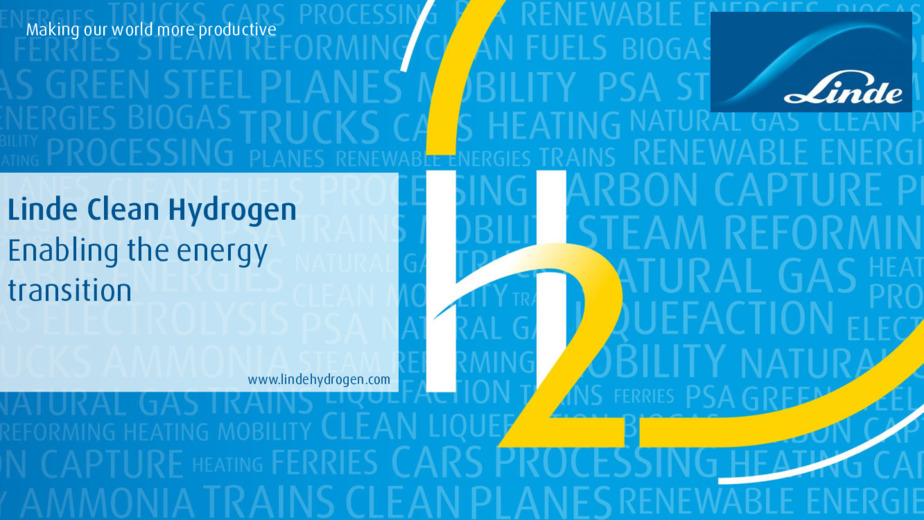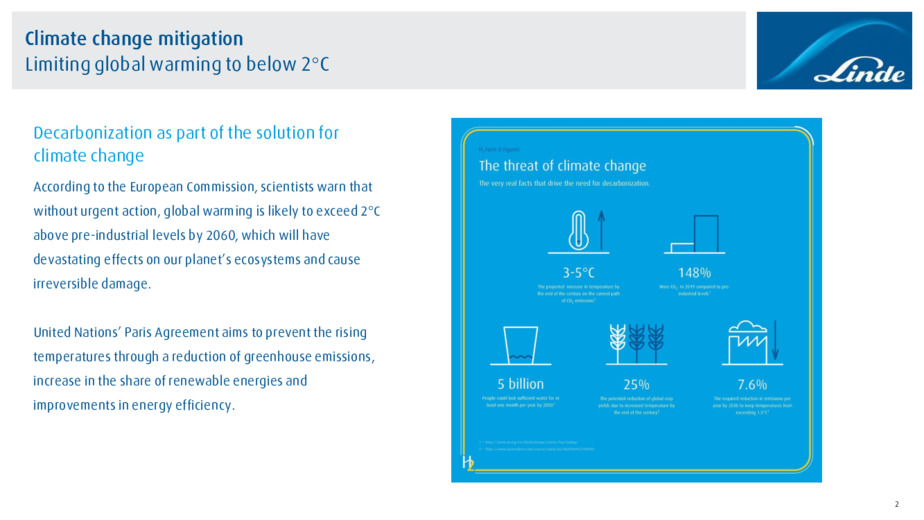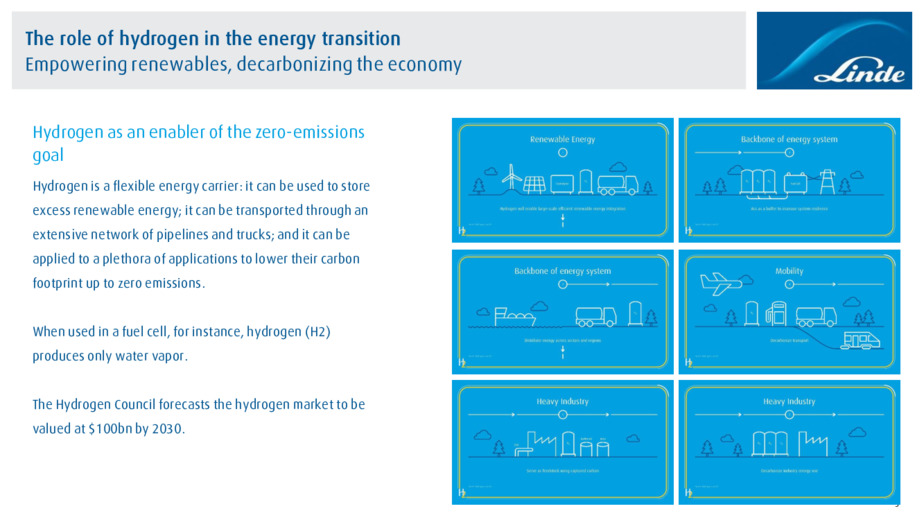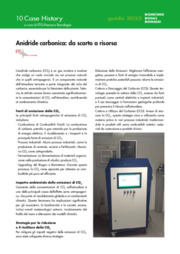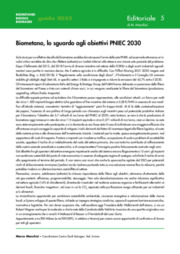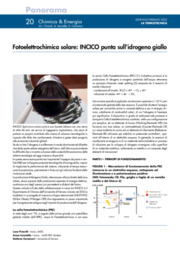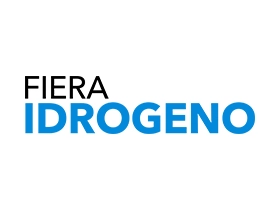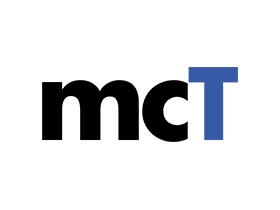Decarbonization as part of the solution for climate change
Enabling the energy transition
Alessio Cogliati - Linde Clean Hydrogen
(in lingua inglese) According to the European Commission, scientists warn that without urgent action, global warming is likely to exceed 2░C above pre-industrial levels by 2060, which will have devastating effects on our planet's ecosystems and cause irreversible damage.
United Nations' Paris Agreement aims to prevent the rising temperatures through a reduction of greenhouse emissions, increase in the share of renewable energies and improvements in energy efficiency.
Hydrogen is a flexible energy carrier: it can be used to store excess renewable energy; it can be transported through an extensive network of pipelines and trucks; and it can be applied to a plethora of applications to lower their carbon footprint up to zero emissions.
When used in a fuel cell, for instance, hydrogen (H2) produces only water vapor. The Hydrogen Council forecasts the hydrogen market to be valued at $100bn by 2030.
Hydrogen can be of many colors, depending on its net carbon dioxide emissions' intensity, production method and feedstock content, as illustrated by the chart. At Linde, we have been harnessing the power of hydrogen for over 100 years and we make continued investments in effective and economic ways to deliver gray, blue and, ultimately, green hydrogen.
Linde is a steward of sustainability and an industry leader in clean hydrogen. We are founding members of the Hydrogen Council and the H2 Mobility and actively advocate for clean hydrogen policies and initiatives through more than 20 industry and government sponsored organizations around the world.
We lead by example and are taking steps towards decarbonizing our own operations. Our SD 2028 Targets include lowering our greenhouse gas emissions intensity by 35%, investing at least $1 billion in decarbonization initiatives and dedicating at least 1/3 of our R&D budget to decarbonization.
Below you can download the full pdf.
When used in a fuel cell, for instance, hydrogen (H2) produces only water vapor. The Hydrogen Council forecasts the hydrogen market to be valued at $100bn by 2030.
Hydrogen can be of many colors, depending on its net carbon dioxide emissions' intensity, production method and feedstock content, as illustrated by the chart. At Linde, we have been harnessing the power of hydrogen for over 100 years and we make continued investments in effective and economic ways to deliver gray, blue and, ultimately, green hydrogen.
Linde is a steward of sustainability and an industry leader in clean hydrogen. We are founding members of the Hydrogen Council and the H2 Mobility and actively advocate for clean hydrogen policies and initiatives through more than 20 industry and government sponsored organizations around the world.
We lead by example and are taking steps towards decarbonizing our own operations. Our SD 2028 Targets include lowering our greenhouse gas emissions intensity by 35%, investing at least $1 billion in decarbonization initiatives and dedicating at least 1/3 of our R&D budget to decarbonization.
Below you can download the full pdf.
Fonte: Convegno Arpa Umbria:
Settori: Ambiente, Cambiamento climatico, Combustibili, Efficienza energetica industriale, Energia, GAS, Idrogeno, Inquinamento, Rinnovabili
Parole chiave: ARPA, Cambiamento climatico, Efficienza energetica, Idrogeno, Rinnovabili, Transizione energetica
- ETG Risorse e Tecnologia
- Marco Manchisi
- EEA European Environment Agency
- MASE - Ministero dell'Ambiente e della Sicurezza Energetica
- European Energy
 English
English


